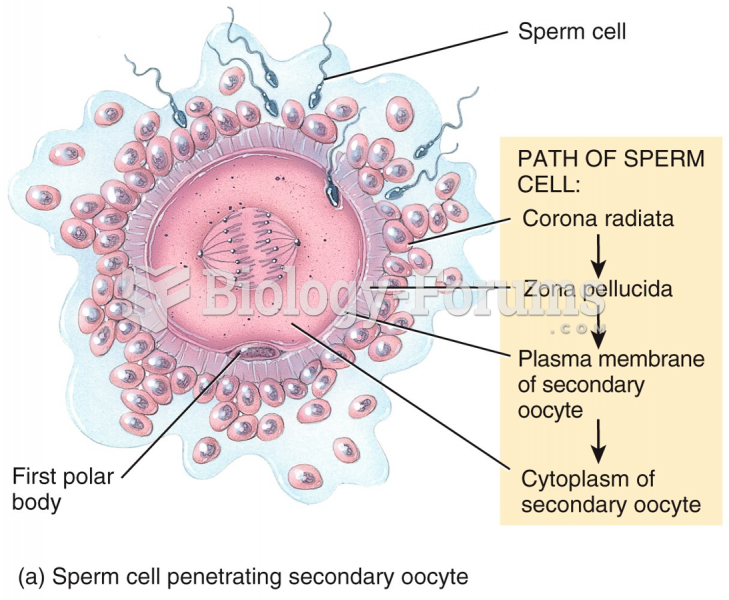|
|
|
Sildenafil (Viagra®) has two actions that may be of consequence in patients with heart disease. It can lower the blood pressure, and it can interact with nitrates. It should never be used in patients who are taking nitrates.
The ratio of hydrogen atoms to oxygen in water (H2O) is 2:1.
The average human gut is home to perhaps 500 to 1,000 different species of bacteria.
Once thought to have neurofibromatosis, Joseph Merrick (also known as "the elephant man") is now, in retrospect, thought by clinical experts to have had Proteus syndrome. This endocrine disease causes continued and abnormal growth of the bones, muscles, skin, and so on and can become completely debilitating with severe deformities occurring anywhere on the body.
After a vasectomy, it takes about 12 ejaculations to clear out sperm that were already beyond the blocked area.







